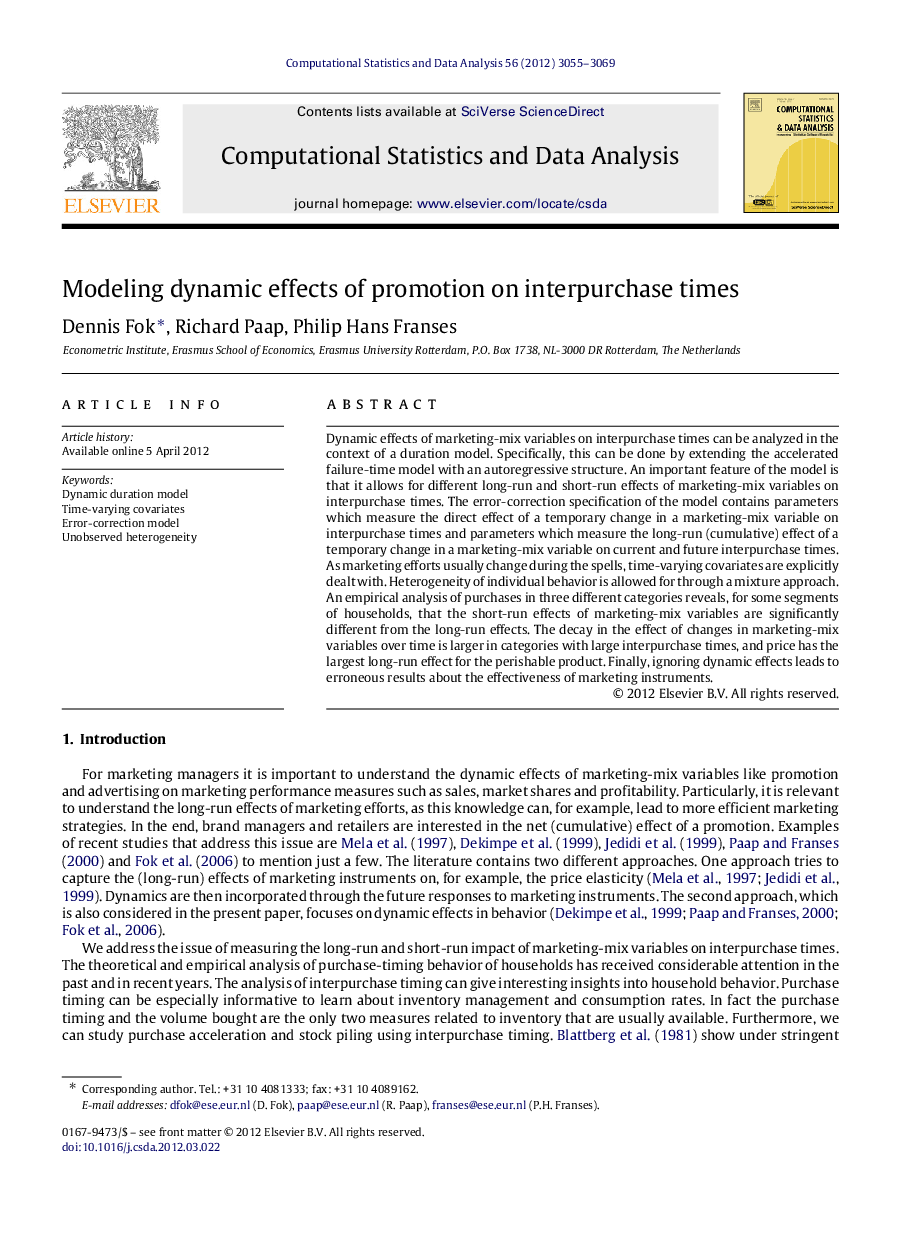| Article ID | Journal | Published Year | Pages | File Type |
|---|---|---|---|---|
| 417524 | Computational Statistics & Data Analysis | 2012 | 15 Pages |
Dynamic effects of marketing-mix variables on interpurchase times can be analyzed in the context of a duration model. Specifically, this can be done by extending the accelerated failure-time model with an autoregressive structure. An important feature of the model is that it allows for different long-run and short-run effects of marketing-mix variables on interpurchase times. The error-correction specification of the model contains parameters which measure the direct effect of a temporary change in a marketing-mix variable on interpurchase times and parameters which measure the long-run (cumulative) effect of a temporary change in a marketing-mix variable on current and future interpurchase times. As marketing efforts usually change during the spells, time-varying covariates are explicitly dealt with. Heterogeneity of individual behavior is allowed for through a mixture approach. An empirical analysis of purchases in three different categories reveals, for some segments of households, that the short-run effects of marketing-mix variables are significantly different from the long-run effects. The decay in the effect of changes in marketing-mix variables over time is larger in categories with large interpurchase times, and price has the largest long-run effect for the perishable product. Finally, ignoring dynamic effects leads to erroneous results about the effectiveness of marketing instruments.
